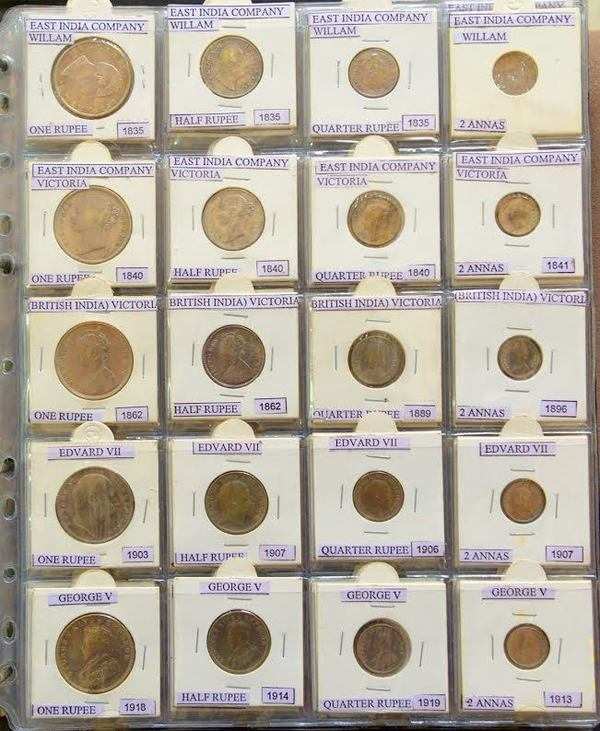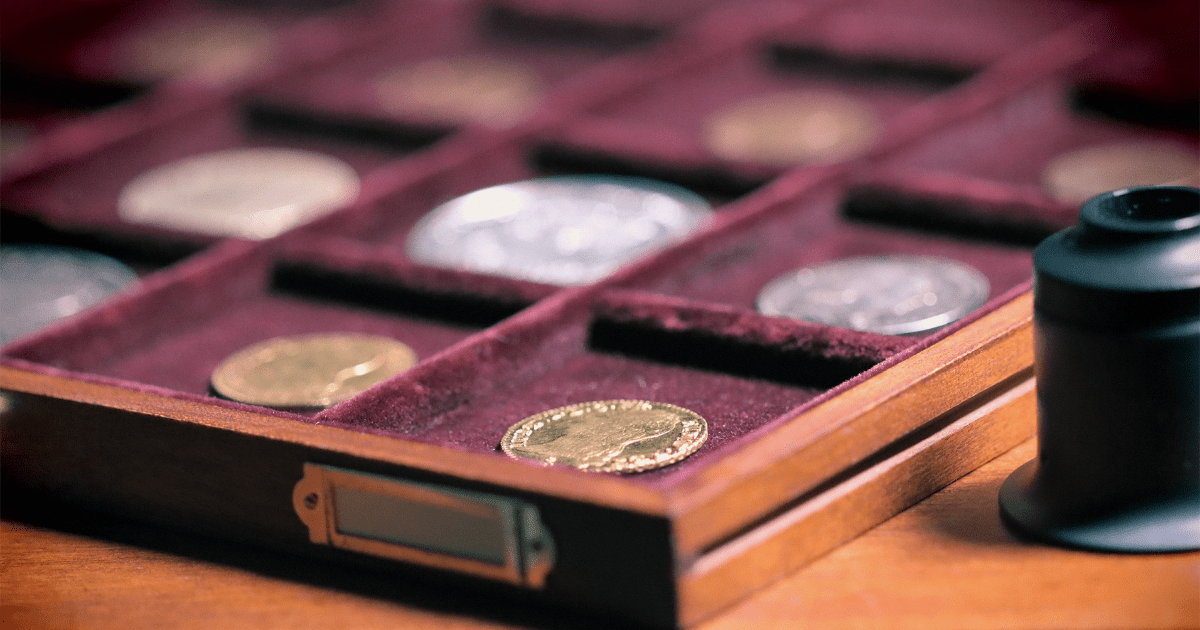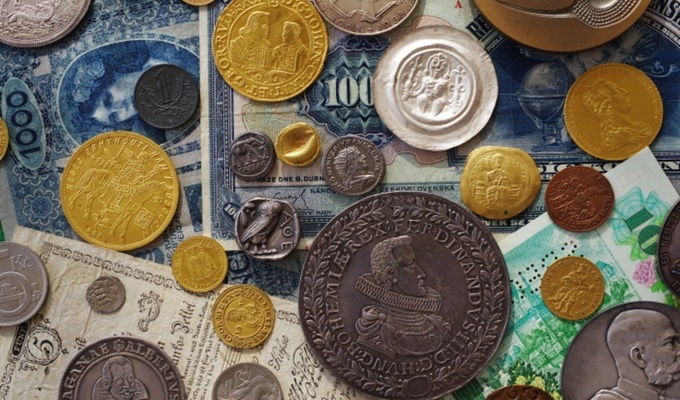Good News For Picking Nickel And Ringgit
Wiki Article
How Can I Use An Online Database To Conduct Research On Numismatics And Central Banks?
To efficiently collect and evaluate data, you'll have to follow a few essential steps.
Database Selection: Look for databases that focus on financial information and numismatics like those provided by numismatic and academic libraries, or groups. Numista and the World Bank's database are a few examples.
The Methodology of Search The first step is to define your research goals. Are you interested in a specific central bank's historical coin issuances, economic policies reflected in coin designs, or the economic impact of numismatic choices? Utilizing keywords like "central bank coins"," numismatics, and central bank names can help you in defining your search.
Data Collection: Utilize the advanced search capabilities of the database to filter out relevant articles and reports. Historical records are available in policy documents, numismatic publications and historical records. These will detail the kinds of coins, the location of the minting as well as the historical context.
Analysis After you have collected the data, you can analyze it to find patterns and trends. Review the coinage policy of central banks and the evolution of design themes as well as the effects of economics on the production of coins. Find correlations to the economic policies or historical events.
Cross-Reference: Validate the findings by cross-referencing multiple sources of information in the database. This helps ensure that you have an accurate knowledge of the data and minimises the risk associated when you rely on a single, biased data.
Documentation: Be sure to note your findings in writing, citing the sources and methods you used. Documentation is crucial for professional or academic reasons and improves the credibility your research.
Stay up-to-date: Numismatics and central bank policy are continuously changing. Keep up-to-date with the latest research, updated catalogues of coins and changes to central bank policies which could impact numismatic trends by visiting the database frequently.
These steps can assist you to gain the benefits databases offer to perform thorough research and gain valuable insight into numismatics. This lets you explore a comprehensive study of the past and present aspects relating to coin production, currency circulation, and broader economic implications. View the best numismatic value tips for blog examples including coin minting, dinar, uncirculated, numismatics, silver, coin forum, uncirculated, currency collecting, coin expo, euro and more.

What Can I Do To Find Out More About Numismatics Specifically In Relation To Exhibitions Or Show Events By Using An Numismatics Database?
The research involves utilizing databases to preserve information on conferences, exhibitions and shows related to numismatics. A structured approach is provided to help you conduct this research. For instance, you can look at the websites of the most prominent numismatic associations like the American Numismatic Association.
Define Research Focus: Specify your research objectives. Do you have a desire to investigating forthcoming and past numismatic events, conferences focused on numismatics? Are you interested in regional coin shows, thematic exhibitions or other educational activities? Clarify your goals to help determine the best route to take.
Search Strategy: Make use of keywords such as "numismatic exhibitions," "coin exhibitions," "numismatic events," and include specific events' names, dates or thematic focus areas when appropriate. Use advanced search options to sort results based on the date, event type (such as conferences, exhibitions) as well as geographic location.
Data collection: Find out regarding upcoming and past exhibitions and events in the field of numismatics. Data collection: Gather information on event dates, venues organizers, thematic or special collections that are highlighted, participating exhibitor, and related catalogs or publications. Look through databases that provide virtual tours and digital access to exhibition items.
Analyze data to identify themes, trends and educational goals for numismatic exhibitions and other events. Examine how various exhibitions, shows and collections aid in public understanding of numismatics.
Cross-Referencing. Verify that your information is accurate by comparing it to other databases, listing of events, and official sites. This ensures completeness and accuracy in your research. You will also have a complete overview of the numismatic exhibitions.
Documentation - Record your findings in a systematic way including the sources you used and highlighting methods. Keep track of the specifics of the databases you visited as well as the search terms that you used, and how each one of them connects to your research.
Keep yourself up to date Numismatics events are constantly changing and new shows, exhibitions and conferences scheduled on a regular basis. Updates from numismatic associations as well as event planners and databases that are specialized are the best way to stay informed about upcoming events.
These steps will enable you to use databases effectively to research numismatics related to shows and exhibitions. This technique allows for an in-depth exploration of the diversity of numismatic events and exhibitions around the globe, as well as their educational value and the scholarly value they bring. Follow the top rated basics about gold coins for website advice including zloty, historical currency, coin errors, banknote artist, bank, collection, banknote storage, authenticity, banknote printing, banknote appraisal and more.

How Do I Search For Numismatics Pertaining To Collectors On An Online Database?
To conduct this type of research, follow this approach: This is a structured way to conduct this research. Database Selection: Select databases that specialize in numismatics, collector profiles and numismatic society. These include online collector forums (such as those offered by the American Numismatic Association), the websites of numismatic organisations, collector databases and specialized numismatic platforms.
Define Research Focus: Specify your research objectives. Are you seeking to understand the interests of particular collectors, the creation of noteworthy collections, trends in numismatic collection or the social and historical reasons behind collecting practices? Find out the key to your search.
Search Strategy: Add keywords such as "numismatic society", "collector profiles", "numismatic collectors" and geographic areas or collector names If appropriate. Utilize advanced search options to sort results based on dates, specialties in collecting (such as old coins exonumia, paper currency, etc.) as well as membership in numismatic societies.
Data Collection: Get access to data on collectors. The information includes biographies collections, interests in collection, noteworthy acquisitions, as well as contributions to community activities or academic research in the field of numismatics. Gather information on the dispersion and development of notable collections. Included are auction results, catalog entries, and information about their sources.
Analyze the data to better understand motives and the influences that influence numismatic collection. Explore the ways in which collectors influence trends in collecting and market demands. They also can contribute to the preservation of the knowledge of numismatics through exhibiting, publishing or by implementing educational projects.
Cross-Referencing Verify information by cross-referencing it with auction archives, databases, numismatic magazines, and collector profiles. This will ensure the accuracy and the completeness of your research. This will also offer insight into the many aspects and contributions of collectors to numismatic communities.
Documentation. Note your research findings by systematically citing sources, and noting the techniques employed. Note down the names of databases or search terms, as well as the relevance of each source in relation to your study.
Stay current: Numismatics' collecting styles and interests change with time. Stay current by checking updates on collector forums, numismatic societies publications, and specialized databases.
By following these steps, you'll be able to effectively make use of databases to research the numismatics of collectors. This will allow you to examine the motives, the goals and contributions of collectors within the numismatic realm. Have a look at the most popular czech coins examples for site examples including circulated, coin holder, slovak coins, legal tender, dime, gold, copyright detection, coin pressing, currency exchange, numismatics and more.

How Do I Access An Numismatics Database For Online Forums And Communities To Do Research?
For conducting such research, follow this approach:Database Selection: Choose online forums and communities that are specialized in the field of numismatics. These platforms let collectors, fans and experts to exchange knowledge about current trends, debate them and show collections. This is a method that can be structured to carry out such research. Examples are forums such CoinTalk on Reddit, r/Coins in Facebook and other communities that focus on numismatics.
Define Research Focus: Specify your research objectives. You might be interested in knowing more about the latest trends in collecting, or discussing certain coin types or the past. You may also want to seek advice on authentication or grading. Find out what you're looking for to narrow down your search.
Search Strategy - Use keywords relevant for your particular interests (such as "numismatic group," "coin communities," or "numismatic online discussions") Include particular keywords (such as old coins modern money, ancient coins paper currency) and the keywords that are related to your research. Use search functions on each platform to locate relevant discussions.
Data Collection: Participate in discussions, threads and postings in the online communities. Find out about strategies for collecting and coin identification techniques, and market trends. You can share your own personal experiences with numismatic finds, or discuss various aspects of the culture.
Analysis: Analyze information to gain a greater understanding of the opinions, experiences, and expertise that are shared by people who belong to online numismatic groups. Examine the reliability of the data by evaluating the opinions of experts and the consensus of the members on certain topics, and the depths of discussion.
Cross-Referencing. Check your knowledge by comparing information from various forums and communities. Review the information on various platforms to get a wider perspective of collecting trends and market sentiments.
Documentation. Record your findings by regularly citing discussions or threads and contributing authors when required. Keep track of the key findings and the opinions that are shared in online forums and communities.
Keep active: Participate in discussion and post questions to discover more and make connections within the community of numismatists. Stay informed with new threads, replies, as well as announcements to stay on top of current discussions and trends.
Follow these steps to effectively make use of online communities and forums for the study of numismatics. This method allows you to draw on the collective wisdom and experience of a diverse collection of experts and collectors, offering valuable insights and perspectives on various aspects of the coin's identification and appreciation. Check out the recommended historical currency for website advice including rare coins, banknote rarity, historical currency, coin grading, coin mintmark, coin marketplace, coin holder, slovak coins, antique coins, coin value and more.

What Can I Do To Find Out More About Technology Providers Through A Numismatics-Related Database?
For conducting such research, here's a systematic procedure: Select databases that specialize on technologies that are relevant to the field of numismatics. Here's a structured approach to conduct such research:Database Selection: Select databases that specialize in technologies that are related to the field of numismatics. Examples include industry reports, websites of companies, numismatic technology forums, as well as publications from numismatic societies focusing on the latest technological advances.
Define Research Focus: Specify your research objectives. Do you want to know more about coins imaging systems, advancements in authentication techniques such as the X-ray fluorescence or spectroscopy? tools for digital cataloging or ways to identify counterfeits? Find your niche to focus your search.
Search Strategy: If it is applicable you can use keywords such as "numismatic technology provider", "coin imaging system", or "authentication devices for coins" and include specific companies or technologies (such digital imaging firms, authentication devices manufacturers). You can also use advanced search options in order to filter the results by date, industry and kinds.
Data collection: Find out data on technological advancements and advancements in numismatics. Find out information about company profiles, product descriptions, technical specifications, case studies of technology implementations and reviews of the most technologically advanced solutions for the numismatic field.
Analyze: Gain a better understanding of the capabilities of different technologies and their impact by analyzing the information. Analyze how these technologies enhance authentication processes, cataloging the efficiency of their use, aid in research on numismatics and tackle issues within numismatic communities such as detection of counterfeits.
Cross-Reference Information: Verify that your data is correct and up-to-date by comparing it with other databases, industry reports or websites of technology companies, as innumismatic magazines. This will ensure that your research is reliable and complete, offering insight into the diverse technology solutions that are available to you in numismatics.
Documentation: Documentation is crucial. Use sources to cite and record the methods employed. Note the details of the databases you have accessed, the keywords used to search, and the importance of every source you use to answer your research needs.
Stay up-to-date: Numismatic technologies are constantly developing with advancements in digital cataloging, authentication and imaging. Follow updates from tech companies, industry reports, numismatic publications, and technology providers to remain current on the most recent advancements.
Follow these steps to use databases to effectively explore numismatics with respect to technology providers. This approach permits a comprehensive examination of the technological innovations that influence cataloging, authentication and research capabilities of the numismatic community as well as providing insight on how technology influences numismatic practices. See the recommended look what i found for banknote authenticity for blog advice including coin dealer, coin club, proof, coin display, coin mold, coin authenticity, gold coins, mint, coin catalog, slovak coins and more.
